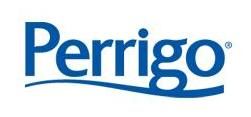预约演示
更新于:2025-07-30
Edelfosine
依地福新
更新于:2025-07-30
概要
基本信息
原研机构 |
非在研机构 |
权益机构- |
最高研发阶段临床前 |
首次获批日期- |
最高研发阶段(中国)- |
特殊审评- |
登录后查看时间轴
结构/序列
分子式C27H58NO6P |
InChIKeyMHFRGQHAERHWKZ-UHFFFAOYSA-N |
CAS号70641-51-9 |
关联
1
项与 依地福新 相关的临床试验IRCT20130811014330N8
To determine the cardiovascular effects triodithyronine (T3) in patients poisoned with aluminum phosphide (AlP)
开始日期2018-02-21 |
100 项与 依地福新 相关的临床结果
登录后查看更多信息
100 项与 依地福新 相关的转化医学
登录后查看更多信息
100 项与 依地福新 相关的专利(医药)
登录后查看更多信息
989
项与 依地福新 相关的文献(医药)2025-12-01·JOURNAL OF COLLOID AND INTERFACE SCIENCE
Alkylphospholipids act through stabilization of planar membranes and inhibition of membrane budding and fusion
Article
作者: Fanani, María Laura ; Socas, Luis Benito Pérez ; Valdivia-Pérez, Jessica Aye ; Ambroggio, Ernesto Esteban
Alkylphospholipids (APLs) represent a novel class of anticancer drugs that disrupt lipid homeostasis by inhibiting lipid transport to the endoplasmic reticulum and altering cellular lipid metabolism. In this study, we use protein-free membrane models to investigate how the APLs miltefosine, edelfosine and perifosine influence membrane dynamics through lipid-APL interactions, resulting in the stabilization of planar membranes. This stabilization impedes critical remodelling processes such as membrane budding and fusion, essential for cellular processes. Our findings demonstrate that APLs modulate membrane curvature via geometric compensation between cone-shaped APLs and inverted cone-shaped lipids like phosphatidylethanolamine. We also explored the effects of both homogeneous and asymmetric incorporation of APLs into bilayer lipid structures, mimicking their interactions with cell membranes. The results reveal that APLs alter curved lipid structures, stabilizing planar membranes and reducing spontaneous curvature. This geometric compensation mechanism profoundly impacts membrane dynamics, where miltefosine and edelfosine exhibit greater activity compared to perifosine. These findings provide significant insights into how APLs disrupt lipid homeostasis in cellular environments.
2025-11-01·REGULATORY TOXICOLOGY AND PHARMACOLOGY
Effects of anti-oxidants, NOX inhibitor (DPI), and anti-apoptotic pathways on carbohydrate metabolism and liver function in acute aluminum phosphide toxicity exposed rats
Article
作者: Hosseini, Mehran ; Kooshki, Alireza ; Nakhaee, Samaneh ; Farrokhfall, Khadijeh ; Mehrpour, Omid
Aluminum phosphide (AlP) is widely used in suicide attempts. We evaluated the effects of Diphenylene iodonium (DPI), N- N-acetyl cysteine (NAC), and Nivocasan therapeutics on AlP toxicity. Thirty rats were kept in five groups: control (receiving normal saline); the remaining groups were exposed to oral AlP, and treatments (NAC, DPI, and Nivocasan). Liver function tests (LFTs), serum and liver oxidative markers, insulin, glucose, tumor necrosis factor-α (TNF-α), serum and islets interleukin 1β (IL-1β), and glucose-stimulated insulin secretion through islet isolation were assessed. LFTs significantly increased in AlP poisoned animals, and NAC, DPI, and Nivocasan decreased their levels to near control (P < 0.05). DPI and Nivocasan recovered AlP-induced hypoglycemia. Plasma catalase, GPx, and MDA increased in the AlP group, and NAC, DPI, and Nivocasan had protective effects (P < 0.05). DPI significantly decreased serum TNF-α, and NAC decreased IL-1β levels. NAC reversed AlP-induced lower insulin secretion (P < 0.05). Aluminum phosphide (AlP) induces hypoglycemia and liver damage. AlP-related hypoglycemia is associated with elevated inflammatory and oxidative stress markers and impaired insulin secretion from pancreatic islets which improved by NAC. DPI and Nivocasan treat hypoglycemia. DPI and NAC were effective in reducing inflammatory markers.
2025-09-01·INTERNATIONAL IMMUNOPHARMACOLOGY
The protective effects of water-soluble non-starch polysaccharides from Arctium lappa on LPS-induced acute lung injury in vitro and in vivo
Article
作者: Xu, Liang ; Kang, Tingguo ; Meng, Xianqun ; Cai, Qian ; Wang, Dan ; Yin, Haibo
The lung, a fragile yet crucial organ for breathing in humans, is susceptible to harm from harmful external elements. This study advances the extraction of Arctium lappa polysaccharide (ALP) by our team, aiming to broaden the possibilities for novel medications targeting lung conditions. The structure of ALP was further analyzed by congo red analysis. Effect of ALP pre-treatment was checked by assessing antioxidant markers, inflammatory cytokines and antiapoptosis in vitro and in vivo. Congo red analysis showed that ALP had a stable three-helical conformation. ALP conferred protection against acute lung injury (ALI) induced by lipopolysaccharide (LPS) through the attenuation of lung tissue injury and inhibition of cell apoptosis. The apoptosis rate in lung tissues was markedly reduced in ALP-treated groups compared to the LPS group (P < 0.01). This protective effect is primarily attributed to dual mechanisms: the suppression of inflammatory cytokine synthesis and the enhancement of antioxidant responses. ALP significantly reduced the levels of LPS-induced inflammatory cytokines (P < 0.05) including tumor necrosis factor-alpha (TNF-α), interleukin-6 (IL-6) and interleukin-1β (IL-1β) in vitro and in vivo experiments. In addition, ALP alleviated LPS-induced lung injury by reducing malondialdehyde (MDA) and upregulating superoxide dismutase (SOD), glutathione peroxidase (GSH-Px), catalase (CAT), and the overall antioxidant capacity (T-AOC) contents. The western blot analysis of mice lung tissues revealed that ALP pretreatment significantly attenuated the LPS-induced upregulation of key inflammatory signaling proteins (P < 0.05), including TLR4, MyD88, p65, P-p65, i-κB, p-i-κB, JNK, and p38 protein levels. The results of RAW264.7 cell experiments further veriffed that ALP inhibited TLR4/NF-κB/MAPK pathway. In conclusion, ALP can reduce LPS-induced ALI by inhibiting inflammation and oxidative stress.
100 项与 依地福新 相关的药物交易
登录后查看更多信息
外链
| KEGG | Wiki | ATC | Drug Bank |
|---|---|---|---|
| - | 依地福新 | - | - |
研发状态
10 条进展最快的记录, 后查看更多信息
登录
| 适应症 | 最高研发状态 | 国家/地区 | 公司 | 日期 |
|---|---|---|---|---|
| 肿瘤 | 临床2期 | - | - | |
| T细胞淋巴瘤 | 临床前 | 荷兰 | 2010-04-15 |
登录后查看更多信息
临床结果
临床结果
适应症
分期
评价
查看全部结果
| 研究 | 分期 | 人群特征 | 评价人数 | 分组 | 结果 | 评价 | 发布日期 |
|---|
No Data | |||||||
登录后查看更多信息
转化医学
使用我们的转化医学数据加速您的研究。
登录
或

药物交易
使用我们的药物交易数据加速您的研究。
登录
或

核心专利
使用我们的核心专利数据促进您的研究。
登录
或

临床分析
紧跟全球注册中心的最新临床试验。
登录
或

批准
利用最新的监管批准信息加速您的研究。
登录
或

特殊审评
只需点击几下即可了解关键药物信息。
登录
或

生物医药百科问答
全新生物医药AI Agent 覆盖科研全链路,让突破性发现快人一步
立即开始免费试用!
智慧芽新药情报库是智慧芽专为生命科学人士构建的基于AI的创新药情报平台,助您全方位提升您的研发与决策效率。
立即开始数据试用!
智慧芽新药库数据也通过智慧芽数据服务平台,以API或者数据包形式对外开放,助您更加充分利用智慧芽新药情报信息。
生物序列数据库
生物药研发创新
免费使用
化学结构数据库
小分子化药研发创新
免费使用


